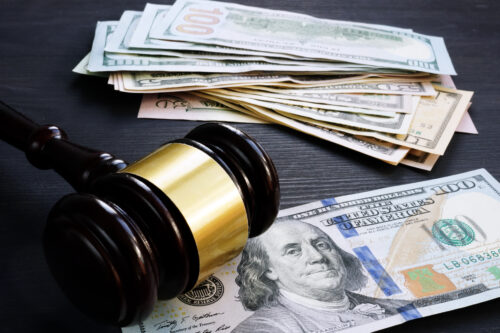
Various illegal activities fall under the category of racketeering. To tackle organized crime, state and federal laws make it a crime for a person, criminal organization, or enterprise to receive income through a pattern of racketeering activity or collection of illegal debts. A person or organization is guilty of racketeering if they set up a fraudulent or extortionary scheme to obtain unlawful profits. If you have been accused of racketeering, contact our talented Nassau County Criminal Defense Attorneys to learn how we can help you today. Please continue reading to learn about the potential penalties.
What is racketeering in New York?
In New York, racketeering is an organized crime involving a scheme to extract illegal profits. Federal crimes under racketeering include bribery, fraud, arson, gambling, money laundering, kidnapping, obstructing justice, embezzlement, robbery, counterfeiting, extortion, murder for hire, and other unlawful activities. The Racketeer Influenced and Corrupt Organizations (RICO) Act is a law that makes it illegal to acquire, operate, or receive income from an enterprise through a pattern of racketeering activity. Ultimately, belonging to a criminal enterprise involved with racketeering patterns is unlawful. It is imperative to note that a pattern of racketeering refers to engaging in at least two incidents with the same or similar intents.
What are the potential penalties for racketeering?
RICO statute violations can result in severe penalties. Generally, racketeering carries a sentence of 5 to 20 years in prison or a fine of up to $25,000 or three times the amount gained by the violation, whichever is greater. Depending on the circumstances of your offense, you can be subject to a lengthy prison sentence and steep fines.
It is imperative to note that RICO cases permit civil suits by private citizens in addition to criminal prosecutions. However, this is only when victims have suffered significant financial harm to their business or property due to racketeering. If they can prove the RICO violation caused them consequential damages, you can be subject to pay restitution. Instead of steep fines, you can be ordered to pay triple the gross damages caused. You can also be ordered to pay for the victim’s attorney and other legal fees. Furthermore, the court can dissolve an organization or enterprise through equitable relief if they engage in unlawful activities, which means you could lose your business.
Should I consult an attorney?
State and federal RICO charges are severe and can include severe penalties such as the forfeiture of assets, restitution for treble damages, equitable relief, and even jail time. Therefore, to maximize your chances of achieving the best possible outcome, you should hire a qualified attorney to help you navigate this complex legal process. Depending on the unique circumstances of your particular case, defenses such as lack of knowledge, lack of pattern of criminal activity, or duress that can help you avoid criminal charges may be available.
If you are being investigated or charged with racketeering, it is in your best interest to retain the legal services of a seasoned Nassau County defense attorney from Grunwald & Seman, P.C. Our firm is prepared to defend your rights and interests.
